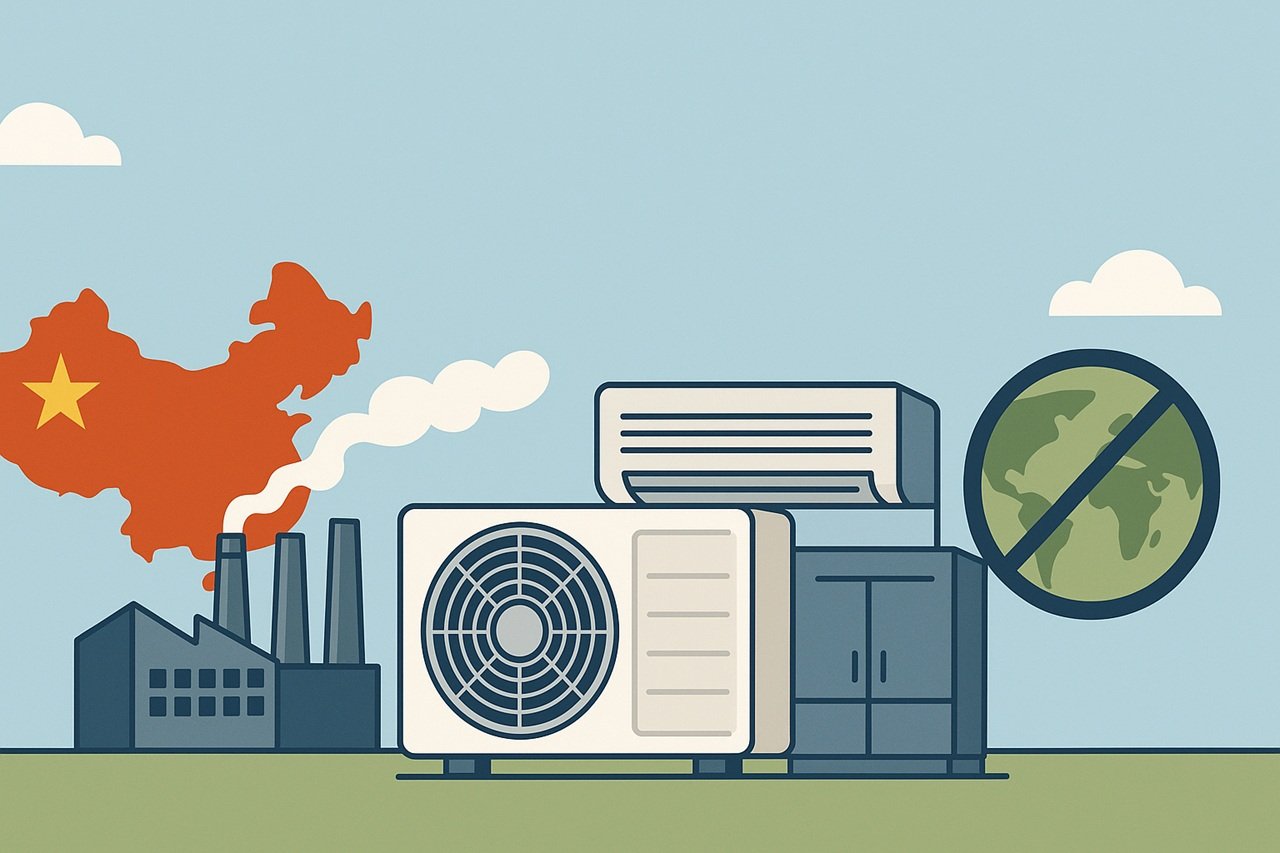China has released its national implementation plan for the Montreal Protocol for 2025–2030, detailing measures to phase down ozone-depleting substances and hydrofluorocarbons (HFCs) in line with its commitments under the Protocol and its Kigali Amendment.
The plan mandates a gradual reduction of hydrochlorofluorocarbons (HCFCs), targeting a 67.5% cut in production and 73.2% in consumption by 2025 from baseline levels, and a 97.5% cut by 2030. Limited production and use will be retained only for servicing refrigeration and air conditioning systems. Production of HCFC-141b for controlled use will be banned from January 1, 2026.
For HFCs, China aims to reduce production and consumption by 10% of baseline values by 2029. Restrictions include a ban from 2026 on household refrigerator and freezer production using HFCs, and from 2029 on the use of refrigerants with Global Warming Potential (GWP) over 750 in most new room air conditioners and small commercial systems. Automotive air conditioning systems in new M1 vehicles must not use refrigerants with GWP over 150 starting July 1, 2029.
The plan also includes quota licensing and registration systems for production, use, sales, and import/export of controlled substances. It introduces stricter controls on by-products, feedstock uses, and exempted uses such as quarantine and preshipment applications of methyl bromide.
To improve end-of-life management, the plan mandates registration of maintenance and refrigerant recovery units, promotes technician training and certification, and encourages regeneration and traceability of recovered refrigerants. Halon recovery and destruction are also addressed.
Import and export controls will be strengthened with enhanced licensing, inspections, and anti-smuggling enforcement. The plan supports R&D into alternatives and promotes green refrigerants through updates to standards, financial support, and government procurement policies.
“Relevant departments should strengthen supervision, properly manage quotas and registration, and encourage industry associations to promote alternative technologies,” the document states, urging joint efforts to fulfill China’s obligations under the Montreal Protocol and contribute to global climate and ozone protection.
